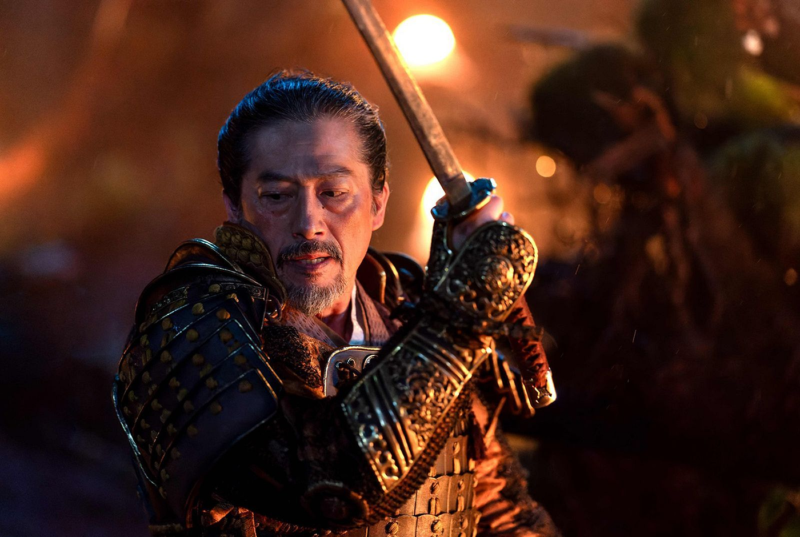The Essence of Bushidō: Loyalty Above All
What does it mean to live and die by a code?
In SHŌGUN, loyalty is not just a virtue — it is the foundation of existence.
As I watched this epic unfold, I was struck by the powerful depiction of Lord Toranaga and his retainers, whose unshakable dedication to their master and to one another defines their very being.
This is not just a story of war and power struggles; it is a story of human connection, bound by duty and sealed with trust.
But in a world where honor is everything, what happens when personal emotions clash with obligation?
Table of Contents
James Clavell’s SHŌGUN presents a rich and multifaceted portrayal of Japan, immersing viewers in its cultural values, social hierarchies, and political intrigues.
Central to this depiction is the code of Bushidō, which dictates the conduct of samurai characters like Lord Toranaga.
The emphasis on honor and loyalty is not mere rhetoric; it is a way of life, deeply ingrained in every interaction.
The most striking moments in the series are not just the grand battles or political maneuverings, but the quiet yet profound displays of devotion.
Consider the retainer who chooses seppuku over the shame of deserting his lord — can we truly fathom such a level of commitment in today’s world? These acts of self-sacrifice serve as powerful reminders of the values that shaped Japan’s past.

Source: Disney+
Hierarchy and social status are intricately woven into the narrative, where distinctions in dress, behavior, and authority define interactions. Toranaga’s commanding presence exemplifies the rigid structure of feudal Japan, where daimyō wield unquestionable power over their subordinates. Yet, beneath the surface of this structured society, we see glimpses of genuine human relationships.
The way Toranaga’s retainers stand by him, not just out of duty but out of trust and shared purpose, adds a deeply emotional layer to the story.
Have you ever felt such unwavering loyalty to a cause or a person?
Rituals, Traditions, and the Power of Perception
The series also highlights the importance of tradition and customs, particularly through rituals that dictate daily life.
The tea ceremony, for instance, becomes a symbol of aesthetic refinement and philosophical contemplation, showcasing the Japanese appreciation for discipline, harmony, and precision.
The meticulous nature of this practice contrasts with Blackthorne’s initial impatience, but as he begins to understand the deeper significance, he gains a profound respect for Japanese culture.
Likewise, the concept of face — maintaining dignity and composure in all situations — is repeatedly emphasized, shaping character decisions and interactions.

Japan and the Foreigners: Clash and Assimilation
Japan’s relationship with foreigners is another recurring theme, illustrated through the dynamic between the Portuguese traders, Jesuit priests, and Blackthorne himself.
Initially regarded with suspicion as a ‘barbarian,’ Blackthorne’s presence challenges Japanese perceptions of Westerners.
His gradual assimilation — learning the language, adopting Japanese customs, and earning Toranaga’s trust — reflects the broader historical tensions between isolationism and foreign influence.
The Jesuits, who seek to maintain their control over Japanese trade and religion, embody the complexities of this cross-cultural exchange, as their political maneuvering intertwines with the broader struggle for power.
Political intrigue is at the heart of SHŌGUN, painting Japan as a land of shifting alliances, strategic marriages, and ruthless ambition.
Toranaga’s maneuvering to secure his survival against the Council of Regents mirrors historical power struggles, emphasizing the cutthroat nature of feudal politics.
Every action, from arranged marriages to secret betrayals, serves a strategic purpose, illustrating the depth of political calculation required to navigate this world.
This extends to family and clan loyalty, where allegiances are dictated by blood ties and duty rather than personal desire.
Lady Mariko, torn between her loyalty to Toranaga and her Christian faith, exemplifies the sacrifices individuals must make for their families and lords.
Brotherhood, Betrayal, and the Enduring Lessons of SHŌGUN
Ultimately, SHŌGUN crafts a complex and immersive portrayal of Japan, depicting a society governed by honor, hierarchy, and tradition while simultaneously grappling with foreign influence and internal strife.
But what resonates most is the unbreakable bonds between Toranaga and his men.
Their loyalty is not blind — it is tested, questioned, and ultimately reaffirmed through shared hardships.
In a world where alliances shift and betrayals lurk at every corner, their unwavering brotherhood stands as a testament to the true spirit of Bushidō. Can we, in our modern lives, find inspiration in such devotion? Perhaps the lessons of SHŌGUN are not just historical, but deeply relevant even today.
It’s interesting to see it from a woman’s perspective, so please read the related articles as well.


Leave a Reply